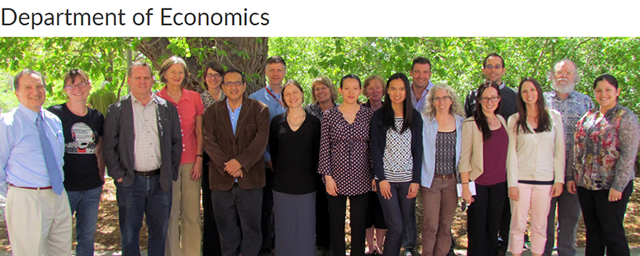
Economics ETDs
Publication Date
Fall 11-9-2021
Abstract
The insurmountable population growth in developing countries, specifically in the urban cities, has posed numerous socio-economic and environmental challenges. The growth of household solid waste is one of them, creating environmental disruption and climate change from a broader perspective. This dissertation investigates three issues related to a solid waste management system; the health risks from improper waste management behavior, household's preference to participate in a waste management system, and the solution to a municipality for optimal allocation of waste disposal by multiple techniques. The first paper uses a primary survey data collected in 2016 to investigate the association between health risks and improper waste management behavior. The second paper deploys a choice experiment method to estimate the preference and willingness to pay for a better solid waste management system. The last paper optimally finds the solution to a municipality for waste disposal allocation in multiple alternatives such as landfilling, recycling, and composting. The first chapter introduces the introduction, motivation, and contribution of the three papers, and the last chapter summarizes the conclusions.
Degree Name
Economics
Level of Degree
Doctoral
Department Name
Department of Economics
First Committee Member (Chair)
Dr. Alok K. Bohara
Second Committee Member
Dr. Jingjing Wang
Third Committee Member
Dr. Andrew Goodkind
Fourth Committee Member
Dr. Jennifer Thacher
Fifth Committee Member
Dr. Sakib Mahmud
Project Sponsors
South Asian Network for Development and Environmental Economics (SANDEE)
Language
English
Keywords
Solid Waste Management, Choice Experiment, Spatial Analysis, Health Impacts, Optimal Control Method
Document Type
Dissertation
Recommended Citation
Rahman, Mohammad Mashiur. "Assessment of preference, health issues, and spatial dependence in a solid waste management system." (2021). https://digitalrepository.unm.edu/econ_etds/124
